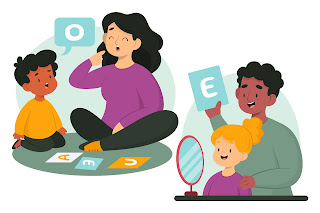Early literacy skills are fundamental skills that help children develop their ability to read, write, and communicate effectively. These skills are essential for academic success and are a strong predictor of future success in school and in life. Here are some reasons why early literacy skills are so important:
Cognitive Development
Early literacy skills, such as letter recognition, phonics, and vocabulary, play a critical role in children's cognitive development.
When children are exposed to language and literacy at an early age, it helps their brains develop necessary neural pathways for language processing and comprehension.
This, in turn, can lead to improved critical thinking skills and problem-solving abilities
School Readiness
Children who enter school with a strong foundation in early literacy skills are more likely to be successful in school.
Early literacy skills promote school readiness by helping children develop their reading and writing abilities, as well as their ability to communicate effectively with their peers and teachers.
This can lead to improved academic performance and better social-emotional development.
Improved Vocabulary
Developing early literacy skills can help children build their vocabulary and comprehension skills.
When children are exposed to a variety of texts and language-rich environments, they are more likely to develop a broader vocabulary and better understanding of language. Choosing a preschool in Indore for your child is best choice to provide the best education
This can lead to better communication skills and improved academic performance.
Love of Reading
Reading is an important skill that helps children develop their imaginations and creativity.
Children who are exposed to reading at an early age are more likely to develop a love of books and reading, which can lead to a lifelong love of learning.
By fostering a love of reading in children, parents and caregivers can help set them on a path to success in school and in life.
Social-Emotional Development
Early literacy skills can also help children develop their social skills and emotional intelligence.
Through reading and writing, children can learn to express their thoughts and feelings in a safe and constructive way.
This can lead to better communication and stronger relationships with others.
Strong Foundation for Lifelong Learning
Early literacy skills provide children with a strong foundation for lifelong learning and success.
By developing early literacy skills, children are better prepared to succeed in school and in life.
These skills can also help children develop critical thinking skills, problem-solving abilities, and a love of learning that will serve them well throughout their lives.
In conclusion, early literacy skills are essential for children's cognitive, social-emotional, and academic development. By fostering a love of reading and language in children at an early age, parents and caregivers can help set them on a path to success with the best preschool in Indore and in life.

Comments
Post a Comment